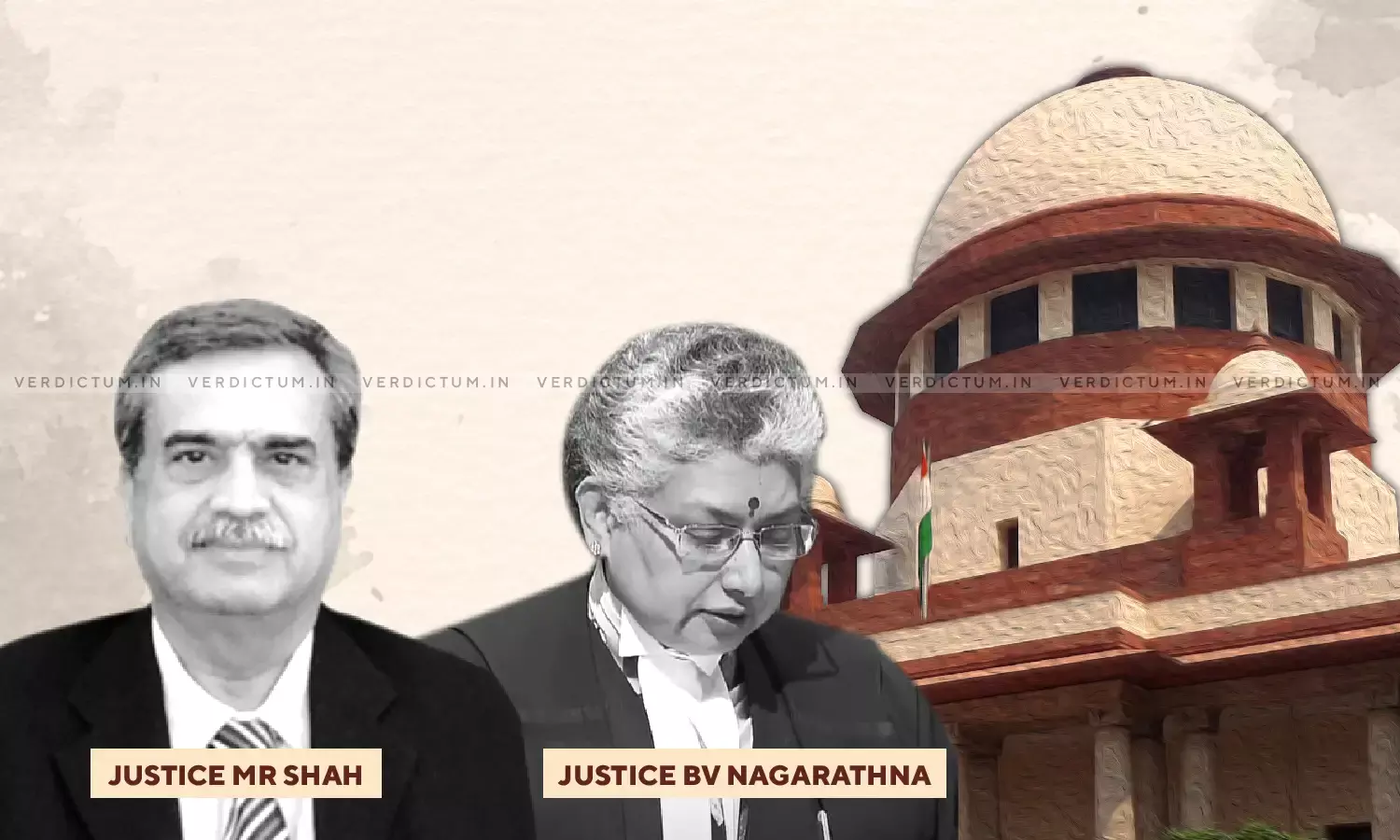Section 302/34 IPC – Accused Shared Common Intention To Kill Deceased – SC Reverses HC's Order Of Acquittal

A two-judge Bench of Justice MR Shah and Justice BV Nagarathna while setting aside the High Court's order of acquittal in a murder case has held that once it has been established and proved by the prosecution that the accused shared a common intention in that case it is immaterial whether any of the accused had used any weapon or not and/or any of them caused any injury to the deceased or not.
An appeal was preferred by the State of MP assailing the judgment of the Madhya Pradesh High Court which had allowed the appeal of the accused and acquitted Respondent 1 and 2 – Original Accused Nos 1 and 3 for the offences under Section 302 read with Section 34 IPC, by giving them benefit of doubt.
The Trial Court had held all the accused guilty for offences under Section 302/34 IPC. The Court had held that all the accused shared the common intention to kill the deceased and sentenced them to undergo life imprisonment with a fine.
On an appeal by the accused before the High Court, the Court acquitted Respondent No 1 and 2 by giving them the benefit of doubt by observing that there is a contradiction in the ocular and medical evidence and therefore their presence was doubtful.
Aggrieved, the State approached the Supreme Court.
The Apex Court noted that PW1, PW3, and PW5 were eyewitnesses to the incident and they were believed so far as the other accused were concerned. Further, it was also noted that right from the beginning of filing/lodging the FIR, the names of all the accused were disclosed.
Further, the Bench opined that the presence of all the accused was established and proved by the prosecution.
The Court held, "Therefore, as such it cannot be said that there are any material contradictions in the ocular and the medical evidence of which benefit of doubt should be given to the accused."
"Even otherwise once it has been established and proved by the prosecution that all the accused came at the place of incident with a common intention to kill the deceased and as such, they shared the common intention, in that case it is immaterial whether any of the accused who shared the common intention had used any weapon or not and/or any of them caused any injury on the deceased or not," the Court observed.
The Bench additionally held that the High Court did not take all the vital aspects of the case into consideration and did not appreciate the entire evidence on record and acquitted the accused by simply observing that there were contradictions in the ocular and medical evidence.
The Court added that the presence of all the accused had been established and the prosecution had also been successful in proving that the accused shared the common intention.
In this context, the Bench noted –
"Therefore, as such the learned Trial Court rightly convicted all the accused including accused No.1 and 3 for the offences punishable under Section 302 read with Section 34 of the IPC. The High Court has erred in reversing the conviction and acquitting accused No.1 and 3 – respondent No.1 and 2 herein, by giving them the benefit of doubt."
Accordingly, the Court allowed the appeal and set aside and quashed the impugned judgment of the High Court and restored the judgment of the Trial Court convicting the accused to life imprisonment. The Court also directed the accused to surrender and undergo the remaining sentence.
Click here to read/download the Judgment

